Five things you need to know about the coronavirus pandemic this Monday evening.
Here are five things you need to know about the coronavirus pandemic this Monday evening. We’ll have another update for you tomorrow morning.
Shops, hairdressers, gyms and outdoor hospitality will reopen on 12 April in England if strict conditions are met, under plans set out by the PM earlier. Boris Johnson’s four-step roadmap for ending lockdown means that up to six people from separate households could be able to meet in beer gardens from 12 April, while all legal limits on social contact could be lifted by 21 June. It requires four tests on vaccines, infection rates and new coronavirus variants to be met at each stage. Mr Johnson told MPs the plan aimed to be “cautious but irreversible” and at every stage decisions would be led by “data not dates”. Mr Johnson will lead a Downing Street news conference at 19:00 GMT. You can read more about the timetable for easing measures here.

The first results of the UK’s vaccination rollout suggests it is having a “spectacular” impact on preventing serious illness from coronavirus. Research led by Public Health Scotland found that at four weeks after the first dose, Covid hospital admissions were reduced by 85% for the Pfizer jab, and 94% for the AstraZeneca jab. Lead researcher Prof Aziz Sheikh said the results were “very, very” impressive and both vaccines were working “spectacularly”. Figures for England are expected to be released later. Meanwhile, people living with HIV in England and Wales can now choose to have their Covid jab through specialist clinics, without notifying their GP, under updated guidance by NHS England.
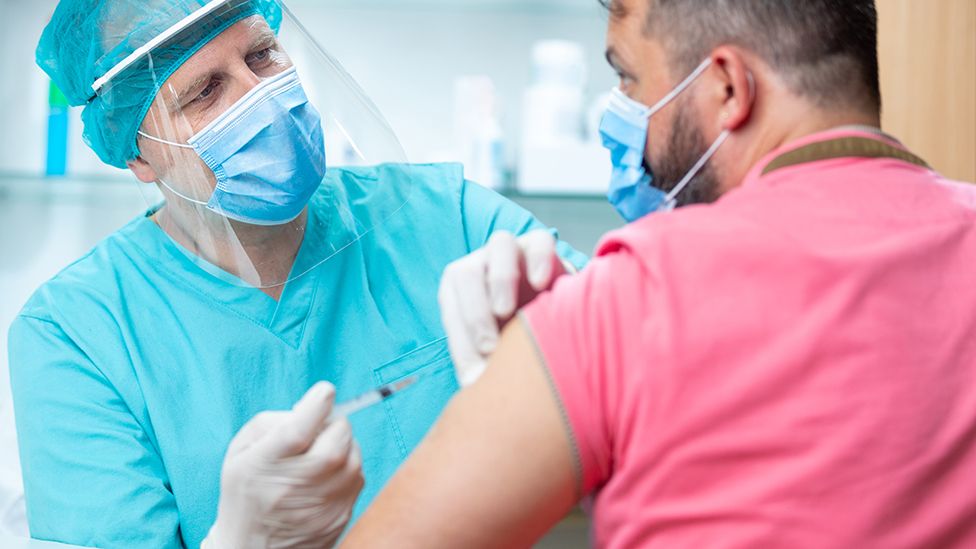
image copyrightGetty Images

In his statement to MPs, Mr Johnson confirmed that schools in England will reopen on 8 March, with individual schools allowed to decide a phased return in that week. Sean Coughlan, the BBC’s family and education correspondent, runs through what we can expect when schools reopen. There will be mass Covid testing in secondary schools – with parents expected to carry out the swabs at home twice a week, after three tests in school. Face coverings will also be required in some secondary school classrooms. There are as yet no plans so far for primary school pupils to be tested. Younger pupils in Scotland and Wales began returning to the classroom today. In Northern Ireland, pre-school, nursery and pupils in primaries one to three will return to classrooms on 8 March. After two weeks, they will resume remote learning so older pupils in years 12 to 14 can go back to school.
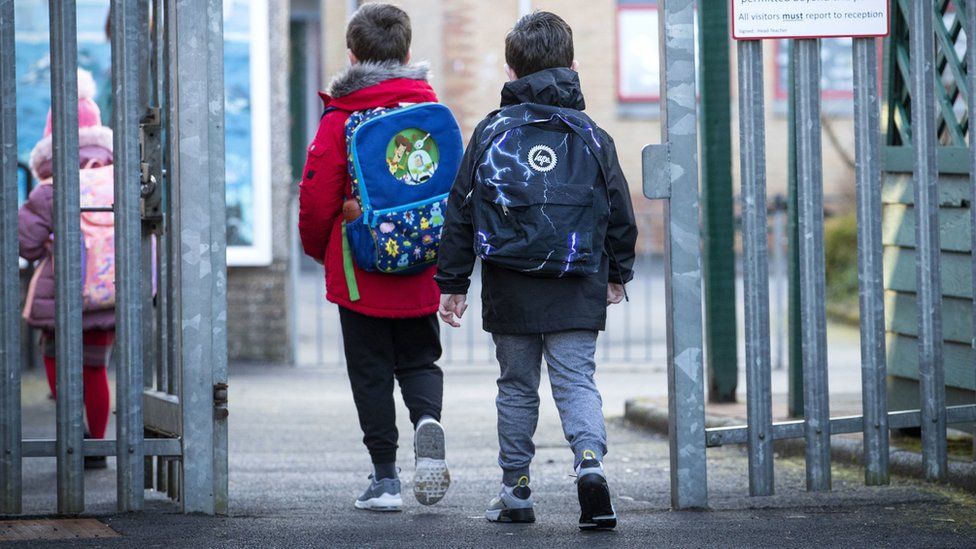
image copyrightJane Barlow

A “small family funeral” for Captain Sir Tom Moore will take place on Saturday, as his daughters urged the public to support the NHS by staying at home. The 100-year-old Army veteran, who raised almost £33m for NHS charities by walking laps of his garden, died in Bedford Hospital on 2 February after testing positive for Covid-19. Under the current rules, the funeral will be attended by eight members of Capt Sir Tom’s immediate family – his two daughters, Lucy Teixeira and Hannah Ingram-Moore, four grandchildren and his sons-in-laws. Members of the Armed Forces will perform ceremonial duties at the funeral.
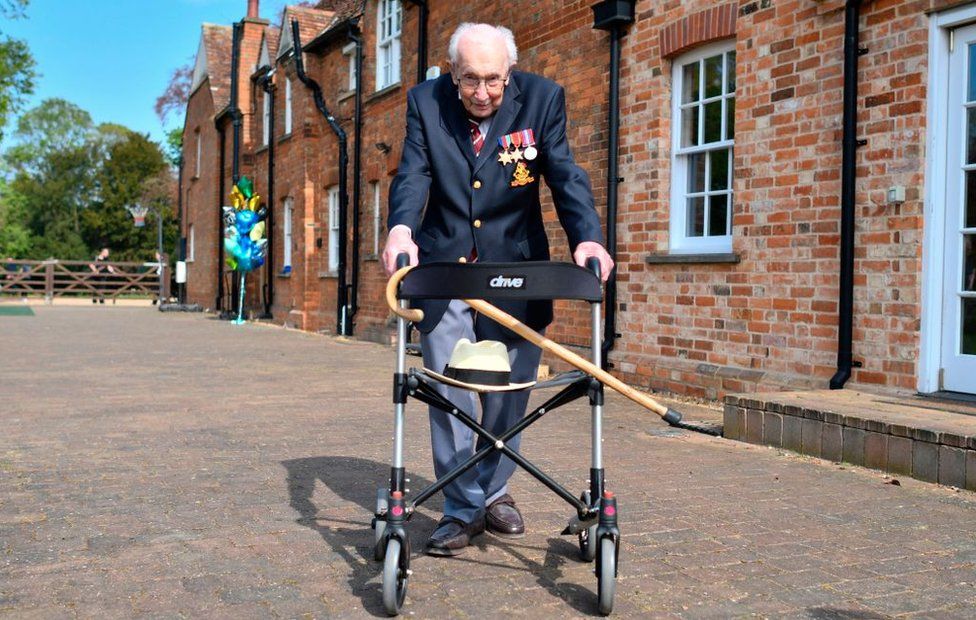
image copyrightGetty Images

In news that will delight sports fans, the government’s four-part roadmap also includes plans for up to 10,000 spectators to return to stadiums by mid-May. The PM told MPs earlier: “The turnstiles of our sports stadia will once again rotate.” The government says it will run a series of ‘pilot’ events for a small number of fans to attend in April. If successful, “up to 10,000 people or 25% of total seated capacity, whichever is lower” will be allowed in stadiums for sporting events, but not before 17 May. Meanwhile, outdoor sports including football, golf and tennis will be allowed to resume in England from 29 March. Leisure centres, gyms and swimming pools can open from 12 April.
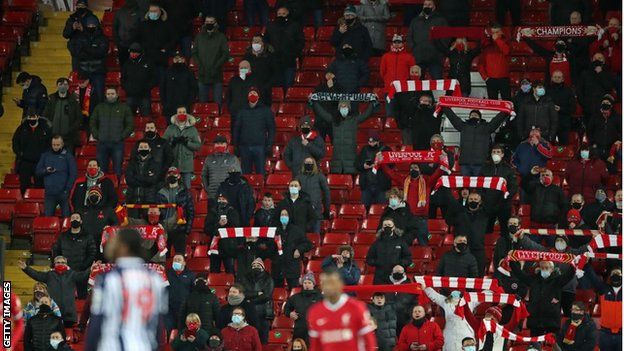
image copyrightGetty Images

You can find more information, advice and guides on our coronavirus page. Read about the UK’s falling case and death rates here – and see the graphic below.
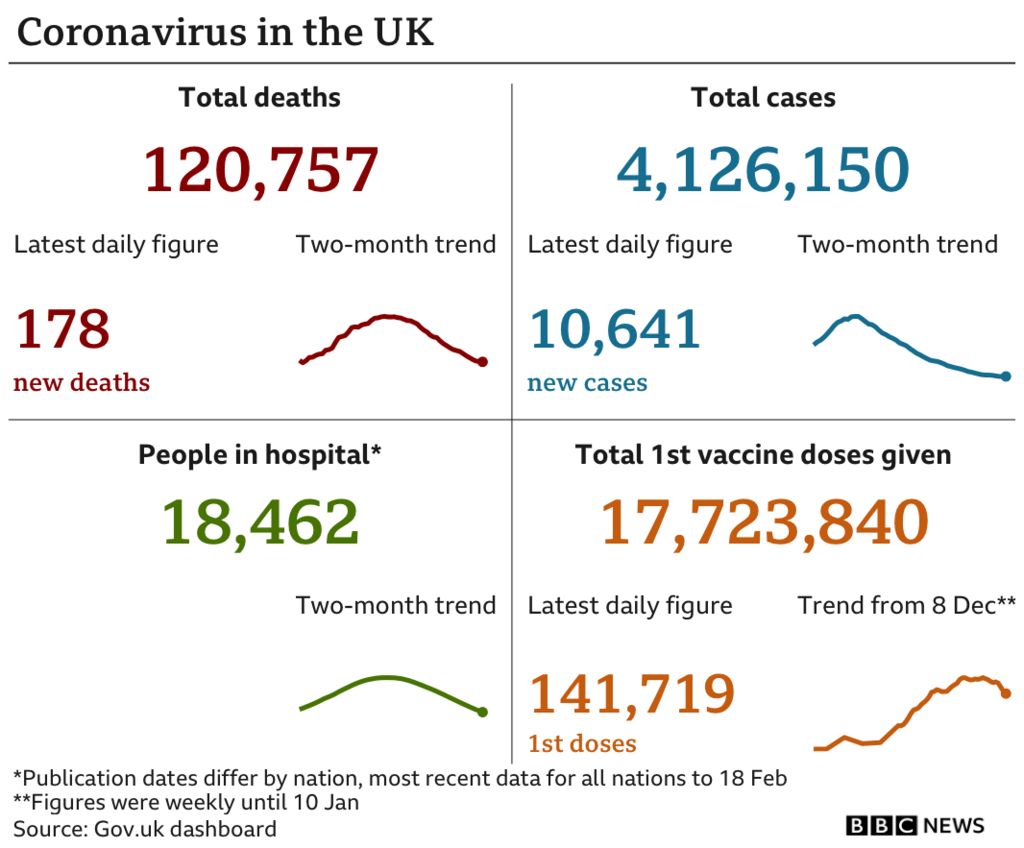


What questions do you have about coronavirus?
In some cases, your question will be published, displaying your name, age and location as you provide it, unless you state otherwise. Your contact details will never be published. Please ensure you have read our terms & conditions and privacy policy.
Use this form to ask your question:
If you are reading this page and can’t see the form you will need to visit the mobile version of the BBC website to submit your question or send them via email to YourQuestions@bbc.co.uk. Please include your name, age and location with any question you send in.

